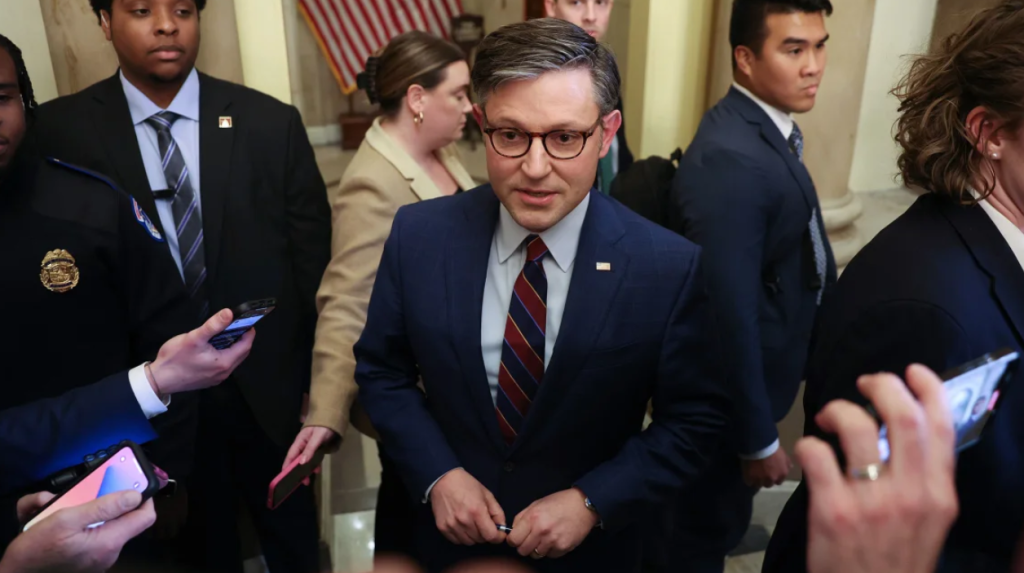
The House on Tuesday failed to pass a standalone package for $17.6 billion in Israel aid amid opposition from both Republicans and Democratic leaders.
Because of resistance among members of the conservative House Freedom Caucus, House Speaker Mike Johnson had been forced to bring up the bill under a procedure that requires two-thirds majority of the House to approve it. That means he needed the support of a sizable number of Democrats to get behind it, and failed to cross that threshold.
Inside a closed caucus meeting Tuesday morning, House Democratic leadership made a forceful case against supporting the standalone Israel aid package to members. Dozens of Democrats exiting the meeting said they will be voting against the bill.
The House Homeland Security Committee’s top Democrat, Rep. Bennie Thompson of Mississippi, called the effort “a trap.”
President Joe Biden had also issued a veto threat against the standalone Israel aid bill, citing a desire to include it as part of a larger national security package.
Aid to Israel has been a component of that bipartisan Senate legislation, which also includes aid to Ukraine and Taiwan as well as money and policy changes aimed at addressing immigration and the border. But that bill also appears on the brink of defeat amid GOP opposition, and Johnson has said House Republicans have been excluded from those talks prompting the standalone bill.
In a “Dear Colleague” letter to lawmakers over the weekend, Johnson attacked senators for excluding him and the House from bipartisan negotiations over a border security deal, which is expected to be paired with aid for Israel, Ukraine and Taiwan.
“While the Senate appears poised to finally release text of their supplemental package after months of behind closed doors negotiations, their leadership is aware that by failing to include the House in their negotiations, they have eliminated the ability for swift consideration of any legislation,” Johnson wrote Saturday. “As I have said consistently for the past three months, the House will have to work its will on these issues and our priorities will need to be addressed.”